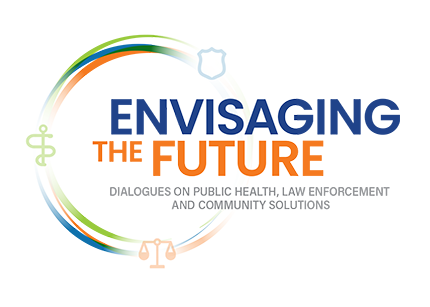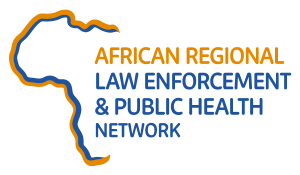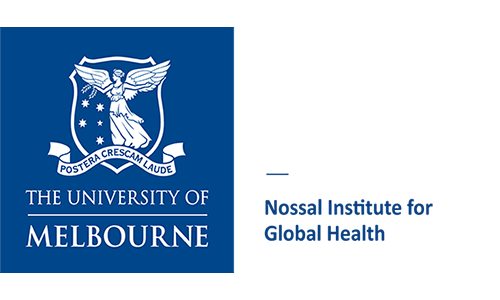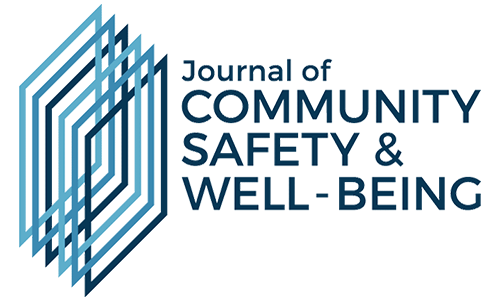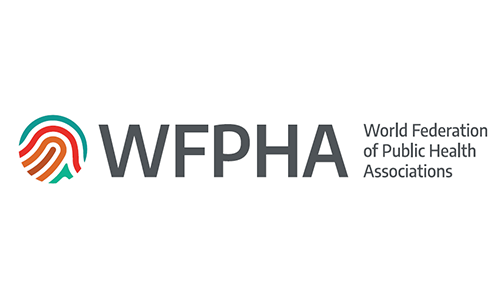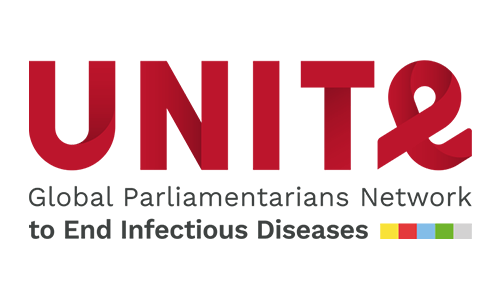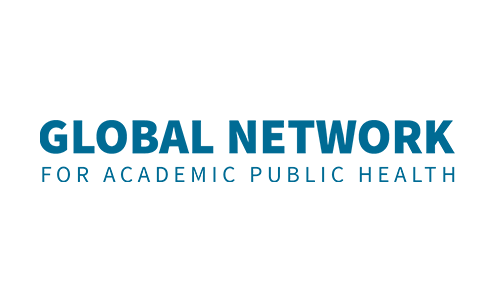Marketplace of Ideas 2022 / Event programme
EVENT PROGRAMME
About the event
What we are doing now is not working. The GLEPHA Marketplace of Ideas 2022 showcases practical and innovative programmes that explore alternative approaches to public health issues that have traditionally been criminalized or over-policed, with a particular focus on the role of police.
Dates
The Marketplace of Ideas took place over a three-week period from Monday September 5th to Friday September 23rd 2022.
All sessions at 7am Los Angeles/10am New York/3pm London/5pm Nairobi/9pm Bangkok/midnight Sydney.
Taking part in #MOI2022
As a fully online event, you can choose to take part in the live sessions and/or watch the session recordings later at a time that suits you.
To view session recordings, just click on the link in the descriptions below.
Contact
For any help or questions please email unger.c@unimelb.edu.au
- Opening, closing sessions
- Thematic sessions
- Plenary sessions
- Informal networking sessions
Worldwide, there is an urgent need for new approaches to long-standing societal problems such as drug use, mental illness, homelessness, gun violence, sexual violence, and many more. We increasingly recognize that our usual ways of addressing these problems – over-reliance on punishment, coercion and incarceration – have not worked or have systematically made things worse. Sectors intended to uphold life, safety and wellbeing – law enforcement and public health – operate in silos or even in competition, when they clearly address the same problems with the same root causes.
In response to this historic moment and need, the Global Law Enforcement and Public Health Association (GLEPHA) is documenting efforts to develop alternative approaches to community safety and health needs, by operationalizing a public health-based response, and working in partnerships with law enforcement. The GLEPHA project focuses on programmes across a wide range of issues and from countries all round the world. In this series of events, we begin to showcase some of these urgently needed innovative approaches, and to look at lessons learned and future directions.
Moderators: Jean-Luc Lemahieu, Director of Division for Policy Affairs, United Nations Office for Drugs and Crime
Keynote speaker:
- Marina Mahathir – Marina Mahathir is a prominent writer, women’s rights and HIV/AIDS activist. In 2010, Marina was named the UN Person of the Year by the United Nations in Malaysia.
- Morgana Danielė – Lithuanian Member of Parliament and drugs policy expert
Speakers: Prof. Monique Michal Marks, Michael Wilson, Linda Naidoo, Auke van Dijk
Session duration: 90 minutes
Where police are involved in and supportive of efforts to reduce the harm associated with illicit drug use, and particularly with the criminalization of such use and of drug users, harm reduction strategies and programmes are far more effective. Historically and currently in many parts of the world this is not the case, because of stigma, discrimination and criminalization. However, mounting evidence from both research and programme experience makes a convincing case of the benefits of addressing drug use as a public health issue, and of the role of police as partners in this public health endeavour. We showcase here five innovative programmes that demonstrate the importance of these partnerships:
- National Police Service harm reduction programme for key and vulnerable populations (Kenya)
- NYC RxStat: Stakeholder perspectives on a national model public health/public safety partnership to reduce overdose deaths (New York City, United States)
- Overcoming Legal Barriers to HIV prevention programmes (Kyrgyz Republic)
- Preventing and reducing HIV/AIDS-related deaths in the police service (Zambia)
- Police carriage of naloxone (Scotland)
Moderator: Julia Ryland
Speakers: Agnes Nyoroka Irungu, Dr. Jebet Boit, Dr. Bennett Allen, Dr. Adelya Urmanche, Natalia Shumskaia, Superintendent Isaac Zimba, Douglas Duncan, Sergeant Chris Devlin
Session duration: 105 minutes
There are many models of programmes to keep people out of the criminal justice system and deflected or diverted to more appropriate care and response, within the health and welfare systems. We showcase here examples of such programmes from many different cultural and political settings:
- Police mediated legal and social assistance to people who use drugs: a pilot model (Ha Noi, Vietnam)
- An overview of Police Referral Schemes in Eastern European and Central Asian countries: Interaction between law enforcement agencies and civil society (Belarus, Moldova, Kazakhstan, Ukraine)
- The Emergency Unit of the Villa Maraini Foundation (Italy)
- Law Enforcement Assisted Diversion: Let everyone advance with dignity: Lessons from three continents (United States/UK/South Africa)
Moderators: Brendan Cox, Jac Charlier
Speakers: Nguyễn Minh Trang, Dr. Zhannat Kosmukhamedova, Philippe Garcia, Prof. Monique Michal Marks, Michael Wilson, Najja Morris-Frazier, Glenn St. Onge, Lisa Daugaard, Zahra Wynne
Session duration: 105 minutes
This session on Law Enforcement and Mental Health highlights innovative programmes from around the globe. Please join us for four exciting presentations and conversation about the intersection of law enforcement and mental health:
- Human-centered Engagement and Liaison Partnership (Alberta, Canada) – Delivering care instead of jail for vulnerable community members
- RedTraSex (Latin America and the Caribbean) – Prioritizing the mental health of sex workers through a supportive multi-national network
- Green String Network (Nairobi, Kenya) – A culturally-sensitive and trauma-informed approach to policing and peacebuilding
- Winthrop Community & Law Enforcement Assisted Recover (CLEAR) program (USA) – Improving access to community-based services
Moderators: Elliot Pinsly, Chris White, Michael Brown
Speakers: Michael Kembel, Elena Eva Reynaga, Lieutenant Sarko Gergerian, Meredith Hurley, Gitahi Kanyeki, Ahmed Famau
Session duration: 90 minutes
A moderated open session for follow-up discussions about matters presented or raised during the week, and for networking with programmes and likeminded colleagues. We hope that participants will feel free to share their experiences and work towards creating communities of interest.
Moderator: Patricia Griffin
Session duration: 90 minutes
Patterns of chronic violence cannot be ended by police alone, but they cannot be solved without police either. This panel will explore policing partnerships to address violence in four diverse settings: Mexico, Iraq, England and Fiji. Themes include trust and relationship building, access to justice and human rights, and trauma-informed approaches to police practice.
- Building effective, resilient and trusted police organizations (Mexico)
- Community Engagement and Policing Programme (Iraq)
- Journey to Trauma Informed Lancashire. A system wide approach to trauma informed practice from communities to practitioners to leaders (England)
- Access to justice and human rights training for police, including First Hour Procedure, use of excessive force, and gender-based violence related services (Fiji)
Moderator: Professor Felia Allum
Speakers: Rodrigo Canales, Majd Hindi, Superintendent Justin Srivastava, Dr. Joanna Goldthorpe, Releshni A. Karan, Itendra Nair
Session duration: 90 minutes
The World Health Organization (WHO) estimates that one in three women, and up to a billion children, experience violence during their lifetimes. Violence against children is commonly perpetrated by peers, carers, and strangers, while violence against women is perpetrated by intimate partners. These experiences can have life-long negative impacts, including harm to physical, mental, sexual and reproductive health. This session will explore four efforts to prevent violence against women and girls across different cultural setting:
- Public Private Partnership between Spanish Police (Family and Women Attention Units) and Easy Reading Institute to facilitate cognitive accessibility to victims’ crime rights (Spain)
- Nationwide stakeholder consultations on safety of women and children (India)
- Improving Frontline Responses to High Impact Domestic Violence (Austria, Finland, France, Germany, Hungary, Portugal, Scotland and Slovenia)
- Broken Wings national campaign for preventing domestic violence (Romania)
Moderators: Kuat Thi Hai Oanh, Dr. Melissa Jardine
Speakers: Carmen Pavón de Paula, Diego García Sánchez, N Ramachandran, Deepika Suri, Dr. Catharina Vogt, Professor Dr. Joachim Kersten, Simona Voicescu
Session duration: 90 minutes
Although policing and public safety should be assured for the whole community, too often the role of police has been suborned to serve and uphold the status quo. This session showcases programs that aim to fulfil the police mandate to protect and serve all members of the community and to protect the human rights and health of minority and marginalized communities. From promoting access to healthcare for sex workers in Mozambique and social protection for sexual minorities in Liberia, to enabling public health approaches to human trafficking in Australia, this session canvasses three inclusive programs where police have adopted new ways of working with focus communities.
- Mozambique Police at the forefront in promoting health and human rights of sex workers (Mozambique)
- Support for Trafficked Persons Programme (Australia)
- Enhancing social protection and health rights for sexual minorities (Liberia)
Moderator: Munya Katumba, Najja Morris-Frazier
Speakers: Arminda Zandemela, Dr. Egor Vasco Borges, Lina Garcia Daza, Luke Perritt, Jennifer Kuwa Henshaw, Mengee Potter Kai
Session duration: 105 minutes
We now know that cross-sector partnerships and collaboration between law enforcement and public health actors are crucial if we are to meaningfully respond to the safety and well-being needs of communities. But we need to know more about how and why these partnerships works in practice so that we are better equipped to design and implement effective programmes in future.
Join us for this panel discussion where we bring together expert discussants and rapporteurs to summarize and reflect on what we have learnt so far from previous sessions in this Marketplace of Ideas event series. Previous sessions showcased a wide range of programmes that explore alternative approaches to public health issues that have traditionally been criminalized or over-policed.
The panel will discuss what these programmes have shown us about the need to bring together all relevant stakeholders into partnership, what challenges they have experienced in doing so, and how they have attempted to overcome them.
Moderator: Brandon del Pozo
Discussant: Sheldon Greenburg
Rapporteurs: Prof. Amy Watson, Elliot Pinsly, Ben Scher, Dr. Tracey Price, Cierra McDonald, Dr. Andrew Faull, Dan Jones, Ayanda Mazibuko
Session duration: 90 minutes
A moderated open session for follow-up discussions about matters presented or raised during the week, and for networking with programmes and likeminded colleagues. We hope that participants will feel free to share their experiences and work towards creating communities of interest.
Moderators: Sheldon Greenburg, Najja Morris-Frazier
Session duration: 90 minutes
We are increasingly recognizing that our usual ways of addressing problems in society – over-reliance on punishment, coercion and incarceration – have not worked or have systematically made things worse. There is an urgent need to reimagine issues that have been traditionally seen as criminal through a public health lens instead, but this requires adopting a significant shift in mindset.
Join us for this panel discussion where we bring together expert discussants and rapporteurs to summarize and reflect on what we have learnt so far from previous sessions in this Marketplace of Ideas event series. These previous sessions showcased a wide range of programmes that explore alternative approaches to public health issues that have traditionally been criminalized or over-policed.
The panel will discuss how these programmes have successfully made headway in influencing and changing institutionalized beliefs, behaviours and practices across a range of different contexts and settings, what challenges they have experienced in doing so, and how they have overcome them.
Moderator: Maureen McGough
Discussant: Sheldon Greenburg, Brandon del Pozo
Rapporteurs: Prof. Amy Watson, Elliot Pinsly, Ben Scher, Dr. Tracey Price, Cierra McDonald, Dr. Andrew Faull, Dan Jones, Melissa Jardine
Session duration: 90 minutes
Public health and policing are inextricably linked, and police play a particularly important role in support of community well-being. In times of public health crisis, for example, law enforcement officers are relied upon as first responders to ensure public health, community safety, and the rule of law. Police also play an important harm minimization role in relation to substance use. Law enforcement officers are also increasingly called upon to respond to individuals in distress or mental health crisis.
In this challenging context, sustainable partnerships between law enforcement, civil society, health and other societal and political sectors are vital to forging joint solutions to issues related to public health and community wellbeing. Multi-sectoral partnerships and solutions have the potential to substantially reduce the risk of a range of harms at the level of the community. Applications could include: a reduction in the risk of HIV and drug overdose, while also protecting the health of key populations and more efficiently managing public health challenges (e.g. pandemics).
This panel aims at exchange of ideas, perspectives and best practices related the key role that law enforcement officers play in terms of public health response. Panellists will particularly focus on the role of police in harm minimization strategies and prevention of substance use, strengthening police skills in responding to public health crises, and strategies to promote multi-sectoral partnerships and build sustainable relationships of trust with the community.
Moderator: Fariba Soltani
Keynote speakers: Ziad El-Khatib, Anja Busse, Zhannat Kosmukhamedova, Karen Peters, Wendy O’Brien
- Opening, closing sessions
- Thematic sessions
- Plenary sessions
- Informal networking sessions


